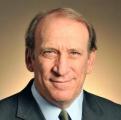
Media Policy

Restrictive media policies can curtail access to the content we do have through the infrastructure we currently have in place. There are clear roles for funders to play in helping to address media policy issues and GFEM works to keep funders abreast of the constantly shifting media policy environment.
The Media Policy Working Group (MPWG) was created to raise awareness and build knowledge about key issues in media policy within the broader philanthropic community. Our aim is to engage and educate grantmakers across fields about the ever-changing media policy and communications policy landscape, as well as foster collaboration among interested donors in support of targeted activities to help advance the media policy field. MPWG activities include a quarterly teleconference and periodic phone briefings on timely issues in addition to quarterly updates in the GFEM newsletter. MPWG also partners with other funder affinity groups to organize media policy-related sessions at national gatherings. Membership is open to grantmakers working in and outside the U.S. with an interest in learning and sharing grantmaking experiences about media policy in the public interest. If you would like to join the MPWG please contact jperlstein (at) gfem (dot) org.







